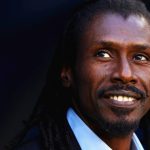Amodu embodies Africa’s disrespect for its coaches
The Nigerian coach helped the Super Eagles qualify for two World Cups, but never led them at the global showpiece as the Nigerian federation twice sacked him before the tournament.
Author:
22 July 2020

As far as football World Cup participation goes, African nations have been in thrall to expatriate coaches for more than 40 years. While this in itself is not a problem, a more recent tendency to not only pass over but consciously displace African coaches in favour of those from Europe or South America is. It undermines the continent’s football and fosters a culture of disrespect.
The 1998 Fifa World Cup is a fascinating study. Only two of the five African representatives, Tunisia and Morocco, arrived in France with the same coach who had led them through qualifying. Cameroon (Claude Le Roy), South Africa (Philippe Troussier) and Nigeria (Bora Milutinović) roped in European coaches at great expense specifically for the tournament.
In the words of former Nigeria national coach Shaibu Amodu: “The foreigner will leave things in complete chaos and the local man is then brought in to fix it. After completing the rebuilding and problem is sorted and calmness restored, they will then run back to the foreigner who started the fire again.
“The local coach is treated like a beggar, who must beg for his six to 10 months’ salary, appeal for friendly matches, beg for proper training facilities and kits, yet he is expected to deliver results.”
Few know this better than Amodu, who lived this reality on more than one occasion before his unexpected death in June 2016.

The 2010 World Cup offered him a unique opportunity. Being the first on African soil, it held a special significance for the then 52-year-old. Also, the chance to lead one of the continent’s heavyweights was, in effect, a chance to lift high the banner of African football.
“The finals in South Africa will be a tournament for all Africans. The South Africans may be hosting, but we will all be playing for the honour of the continent,” he said in an interview with Fifa in 2009.
That great honour was snatched away from him on the eve of the tournament, just like in 2002, after he helped the Super Eagles qualify for the global showpiece.
The native of Edo state in the South South region of Nigeria is one of the country’s most successful coaches. In the early 1990s, he led the BCC Lions to glory on the continent, winning the CAF Cup in 1990 and reaching another final in 1991. He also guided the Shooting Stars to the final of the CAF Cup in 1996, and cemented a reputation as a cup specialist by winning the Nigerian FA Cup four times with two different clubs, a haul that has not been equalled since.
When masterminding a great escape isn’t enough
In 2001, following a disastrous start to World Cup qualification that saw Nigeria accrue a measly seven points from its opening five matches, which included losses to Sierra Leone and Liberia, Dutch coach Jo Bonfrere was sacked. Amodu, hitherto an assistant, was elevated to the role of national team coach and tasked with pulling the chestnut out of the fire.
Assisted by former internationals Stephen Keshi and Joe Erico, Amodu pulled off a remarkable turnaround to book Nigeria a ticket to South Korea and Japan in 2002.
Despite achieving what most considered an arduous objective, he remained wary of his security in the role, saying at the time, “The brief we were given was for us to qualify for the Nations Cup and the World Cup. There is now need for the authorities to come out clearly and let us know what’s next. Until that is ironed out, anything can happen, because this is Nigeria.”
His fears were confirmed following a third-place finish at the 2002 Africa Cup of Nations (Afcon). Amid allegations of a lack of discipline within the squad and with a high-ranking sports ministry official decrying the standard of the Super Eagles’ play, Amodu was dismissed with barely three months to go till the World Cup.
Immediately, a number of European coaches were linked to the role, including Bayer Leverkusen’s Klaus Toppmoller, who admitted he was approached by Nigeria’s football association. Eventually, being unable to fund the outlay for a foreign coach, the task was given to the head of its technical committee, Adegboye Onigbinde.
Related article:
Amodu would find himself in the same situation eight years later.
He was appointed once more in 2008, to replace German Berti Vogts following Nigeria’s worst Afcon finish in 26 years. He immediately set about refreshing the team, incorporating new players from the youth setup.
While the scorelines and performances were not always convincing, and it is arguable whether or not he was able to find that important equilibrium, Amodu guided the Super Eagles through a perilous two-stage qualification process for the 2010 World Cup.
Again, that year’s Afcon would prove decisive for Amodu. Despite another respectable third-place finish – Nigeria’s only two losses came at the hands of Egypt and Ghana, the two sides that contested the final – he was dismissed once more with the World Cup on the horizon.
Improbably, the Nigeria Football Federation (NFF) president at the time, Sani Lulu Abdullahi, admitted to BBC Sport that the sacking came at the behest of public outcry. “We are sensitive to the demands of passionate Nigerians. They have called for the appointment of a manager who will drive the team to play professionally and with discipline as the World Cup finals approach,” he said.
Swede Lars Lagerback, who had failed to guide his own country through the World Cup qualifying process, was appointed in his stead on a five-month contract worth €900 000.
At the time of his death, Amodu was still owed salary payments. “With the Nigerian in charge, there is the constant reminder that there is no money. But a foreigner will get his money regularly and sometimes in advance,” he said.
Nigeria faltered at the tournament, as Africa failed to press home a historic high of six World Cup slots. It was a failing that, in Amodu’s eyes, was predictable and directly attributable to karma. “You cannot rob Peter to pay Paul,” he said cryptically in a restaurant in Sandton, Johannesburg, where he was present to witness the Super Eagles not only fall short but also fail to thrill altogether.
A continental theme
As had been established with Clive Barker in South Africa and Jean Manga Onguene in Cameroon in 1998, Amodu’s experience was not peculiar to Nigeria. Indeed, his former assistant Keshi would face similar treatment during his time in charge of modest Togo.
The former Nigeria captain took charge of the Hawks in 2004. What followed was a miraculous run through qualifying for the 2006 World Cup. Following the 2006 Afcon, in which Togo lost all three of its matches, Keshi was sacked. His replacement was German Otto Pfister.
Keshi was deeply unimpressed. “You will qualify the country for a World Cup or Nations Cup, then they decide you are not good enough to take the team there because you are African or a local coach,” he said. “African football can never grow if we continue this unprofessional attitude towards African coaches.”
Related article:
Unlike Amodu, Keshi would eventually get his moment in the sun, guiding Nigeria to the round of 16 at the 2014 World Cup. However, even that was fraught with challenges. He famously resigned a day after winning the 2013 Afcon and his relations with the NFF were strained almost to breaking point by the time of his departure from the role in 2015.
The reason for this disrespect is difficult to fully understand, but is no doubt rooted in an inferiority complex and the aftereffects of colonialism. Amodu referred to it as “an obsession”, saying: “The mentality that European coaches are better than Nigerian coaches has had a terrible effect on our football leaders.”
Keshi was strident in using his platform to fight the corner of African coaches, as it were. In his mind, all that was needed for indigenous coaches to thrive was the same level of fidelity and freedom that expatriate coaches enjoyed.
“When it also comes to treatment, our own people [football authorities] treat us poorly and the European coaches with so much respect. If you pay me the same as the foreigner and accord me all that you give to him in respect and support, you can imagine how much we can achieve as a team,” he said.
At an international level, Keshi, who died at the age of 54 in June 2016, was the finest African coach of his generation. He was the first African coach to qualify two nations from the continent for the World Cup; one of two people, along with Egypt’s Mahmoud El Gohary, to win the Afcon as a player and coach; and the only black African to coach in the knockout phase of a World Cup.
Changing times with the new guard
Four years after Keshi reached that lofty height with the Super Eagles, Aliou Cisse, who captained Senegal to the quarterfinals in 2002, was the only African in charge of any of the 32 nations taking part in the 2018 tournament in Russia.
“I am the only black coach in this World Cup. That is true, but really these are debates that disturb me,” Cisse told reporters. “I think that football is a universal sport and that the colour of your skin is of very little importance.
“It is good to see there is a black coach but, beyond football, it shows we have quality coaches. I represent a new generation that would like to have its place in African and world football.
“Beyond being good players, we [Africans] are very good in our tactics and have the right to be part of the top international matches.”
Related article:
Cisse highlighted the work of Florent Ibenge, who was not at the World Cup but led the Democratic Republic of the Congo to victory in the 2016 African Nations Championship and a third-place finish at Afcon 2015.
But the Congolese, who praised the Senegalese federation for throwing its weight behind Cisse, could not hide his frustration about the fact that African managers are a rare sight at World Cups.
“After what happened to others before him, Cisse is a breath of fresh air. The general perception is that we can play, but not lead. Maybe the black man is only made to execute,” Ibenge told news agency AFP in a damning assessment of opportunities.



